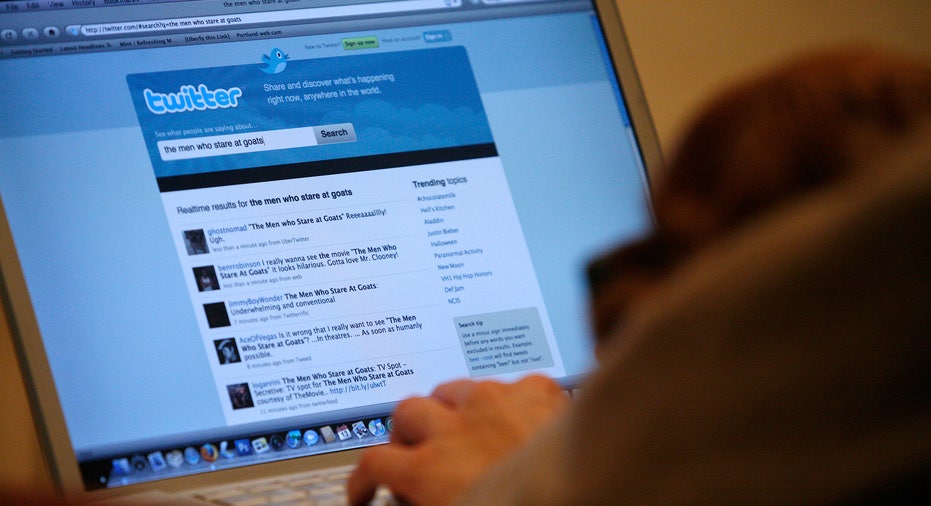Don't Tweet With Burglars

Although you may feel compelled to go online to tell your social networking buddies about your terrific new flat-screen television or your plans to leave town on vacation, remember that Internet eavesdroppers may be interested, too.
Some people make it very easy for tech-savvy burglars to plan their robberies by posting too much personal data on websites like Twitter and Facebook, warns Richard Weinblatt, a law enforcement consultant in Orlando, Fla. "Social networking has become the new intelligence gathering point for people to find out what you have in your home," Weinblatt says.
Gathering intelligence online
Although he is a social networker, when Weinblatt and his family get ready to leave their home, they don't post their plans online. Websites such as Facebook, Twitter and Foursquare, a location-based social network based on mobile devices, "are being used as intelligence reconnaissance," Weinblatt says.
While you may be tempted to announce your exciting vacation plans and start posting pictures from the beach, "you don't want to document it with a would-be burglar," he says. "Don't put information out there that is going to come back to haunt you."
Dick Luedke, a spokesperson for State Farm Insurance, says his company cautions home insurance customers to beware of online predators. "Obviously you don't want to let people know every detail of your life because there are ne'er-do-wells out there who have access to your information."
Matt Edwards, another State Farm spokesperson, notes that the company offers an online learning center and maintains a presence on Facebook, YouTube and Twitter.
"We watch for people who are giving too much privacy information" he says. If State Farm receives a tweet that contains too much personal information, it will advise the sender to remove it, he adds.
An invitation for a robbery
Home burglars are opportunists who look for easy targets. They prefer homes where they know there will be sellable items and nobody home to interrupt their activities. Posting news about buying an expensive item is the modern equivalent of unwrapping an expensive Christmas present and leaving the manufacturer's box on the curb, next to your garbage can, Weinblatt says. Instead of cruising through neighborhoods looking for boxes, these days some bad guys are surfing the Internet in quest of information carelessly made public.
It's crazy
Jan Percival, president of Scribe Communications in San Diego, develops social networking campaigns for businesses and individuals. She warns her clients not to get too caught up in the excitement of making new contacts online.
"It is crazy to reveal your location online," she says. "If your whole family is away on vacation, most likely your home is unprotected. Anyone following you could know that."
Joe Kraynak, co-author of The Complete Idiot's Guide to Facebook, warns that the people who are most likely to abuse personal information about you to plan a burglary are online "friends" who have received your permission to connect with you.
"One of the things we say is 'share with care,'" he says. "First of all, you shouldn't 'friend' everybody. You will get friend requests from people you may not know very well. If you would not have them as friends offline, you shouldn't have them as friends online."
Your own fault
One security solution available on Facebook is to create separate friend lists to control where your messages go, Kraynak adds. "You can put people you trust one list and people you don't trust on another. You can choose to share with only a certain group of friends, so you have your trusted circle and your not-so-trusted circle."
Weinblatt, a former police officer, has little sympathy for people who give away too much information online. "Most people are victims because they have set themselves up," he observes.
A recent study released by the Pew Research Center found that a trusting nature seems to go hand-in-hand with social networking. Researchers reported "that the typical Internet user is more than twice as likely as others to feel that people can be trusted. Further, we found that Facebook users are even more likely to be trusting."
Marcella Wilson, a social media specialist and consultant based in the Baltimore area, says she has noticed the tendency to put too much trust in strangers when posting personal information online.
Staying safe in "a new world"
"A lot of people make the mistake of posting 'We are going away,' or posting vacation pictures while they are on vacation," she says. "People think, 'The Internet is a big thing and I am a little speck and nobody is going to care about my posts.' It is a new world we are in. You have to be careful what you put out there."
The original article can be found at Insure.com:Don't tweet with burglars



















